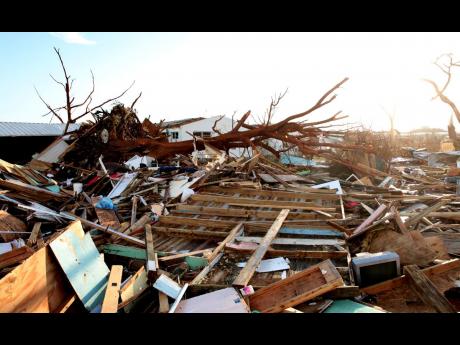Earth Today | AR6 is out
IPCC report champions increased finance flows, tech transfer to developing world
THE SYNTHESIS Report of the Sixth Assessment Report (AR6), which embodies years of work by hundreds of scientists to provide for the world with sound and current information on the realities of a changing climate, is now available for public consumption.
Among the key pieces of information from that report of the Intergovernmental Panel on Climate Change (IPCC), is that “the largest climate finance gaps and opportunities are in developing countries”.
“Accelerated support from developed countries and multilateral institutions is a critical enabler to enhance mitigation and adaptation action and can address inequities in finance, including its costs, terms and conditions, and economic vulnerability to climate change,” reads the document, which remains subject to copy editing and layout.
“Scaled-up public grants for mitigation and adaptation funding for vulnerable regions, e.g., in Sub-Saharan Africa, would be cost-effective and have high social returns in terms of access to basic energy,” it added.
Climate change – together with pollution and nature loss – forms the triple planetary crisis facing the globe and has repeatedly been flagged for coordinated, sustained and scaled-up response actions.
Among the climate risks and threats – to which small island developing states of the Caribbean are especially vulnerable – are extreme hurricane and other weather events as well as sea level rise and rising global temperatures. These risks, in turn, present challenges for water and food security as well as public health.
According to the AR6 Synthesis Report, among the options to enhance mitigation and adaptation in developing regions is making available“increased levels of public finance and publicly mobilised private finance flows from developed to developing countries in the context of the USD 100 billion-a-year goal of the Paris Agreement”.
It also identifies as options “increased use of public guarantees to reduce risks and leverage private flows at lower cost; local capital markets development; and building greater trust in international cooperation processes”.
“A coordinated effort to make the post-pandemic recovery sustainable over the long term through increased flows of financing over this decade can accelerate climate action, including in developing regions facing high debt costs, debt distress and macroeconomic uncertainty,” the report said.
TRADE-OFFS
It added that international cooperation and coordination is critical to “achieving ambitious climate change mitigation goals and climate resilient development”; as well as technology innovation.
“International cooperation on innovation systems and technology development and transfer, accompanied by capacity building, knowledge sharing, and technical and financial support can accelerate the global diffusion of mitigation technologies, practices and policies and align these with other development objectives,” it noted.
The report cautioned, however, that technological innovation can have trade-offs, including new and greater environmental impacts and social inequalities; rebound effects leading to lower net emission reductions or even emission increases; together with an over dependence on foreign knowledge and providers.
“For example, digital technologies can promote large increases in energy efficiency through coordination and an economic shift to services. However, societal digitalisation can induce greater consumption of goods and energy and increased electronic waste as well as negatively impacting labour markets and worsening inequalities between and within countries,” it explained.
But there are a number of fixes.
“Digitalisation requires appropriate governance and policies in order to enhance mitigation potential. Effective policy packages can help to realise synergies, avoid trade-offs and/or reduce rebound effects: these might include a mix of efficiency targets, performance standards, information provision, carbon pricing, finance and technical assistance,” said the IPCC report.
“Technology transfer to expand use of digital technologies for land use monitoring, sustainable land management, and improved agricultural productivity supports reduced emissions from deforestation and land use change while also improving greenhouse gas accounting and standardisation,” it added.
AR6 integrates the main findings of the Sixth Assessment Report based on contributions from the three Working Groups that look at the physical scientific basis of the climate system and climate change; the vulnerability of socio-economic and natural systems to climate change; and the options for mitigating climate change through emissions reduction and prevention. Also included are the findings from three special reports, including the special report done on global warming of 1.5 degrees.


